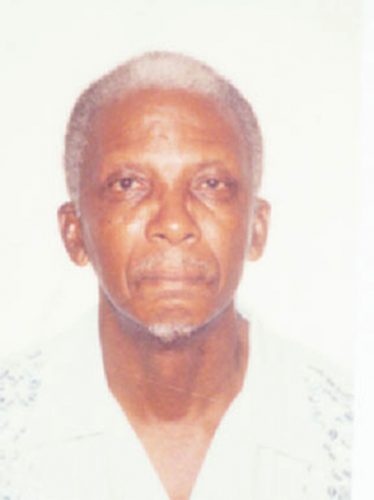Last week’s move to commission the Anna Regina Multilateral School (ARMS) as one of the newest sixth form institutions in the country and its subsequent description as the first in Region Two (Pomeroon-Supenaam) is not sitting well with one of the school’s former Deputy Headmasters.
The announcement about the novelty of the sixth form school had been made by the Ministry of Education
National awardee and veteran educator Walter B Alexander said he was somewhat stunned after reports surfaced in the daily newspapers and online that this is the first time that a school on the Essequibo Coast is offering sixth form schooling.

“I do not know who is responsible for that information getting out there but if it is the newspapers then there needs to be more research before they make such claims and if it is from the Ministry of Education that that is just misinformation. We have to make sure that the right information is out there and the right information, in this case, is that Anna Regina Multilateral School was a sixth form school back in the 70s even before it became Anna Regina Multilateral School,” Alexander related.
He explained that while he only served as DHM for one year at ARMS, he has substantial knowledge of the history of the institution. The sixth form subjects taught back in the 1970s included mathematics, English, history, economics, chemistry, biology and physics.
“So this is not the first time and it means that either the ministry or newspaper doesn’t have the information. Before the school became Anna Regina Multilateral it was Anna Regina Community High and then Anna Regina Secondary which was decanted into the Anna Regina Multilateral building in 1975.
“But before they were in that old building by Cotton Field there at the public road. They used to be somewhere by the Anna Regina high bridge when government secondary education was first introduced to the Essequibo Coast. Then they made a z-shaped building at Cotton Field and in 1975 they went to the Multilateral School building and the school offered sixth form in quite a few subjects,” he related.
Alexander who received the Golden Arrow of Achievement, back in 1997, for his accomplishments in the education sector said that he is hoping that the restart of sixth form schooling at ARMS would not encounter the same fate as it did over three decades ago.
Jogging his memory, Alexander said that the top flat of the institution used to facilitate sixth form teaching in the arts while the sciences classes were conducted on the ground floor in the lab. He reminded that it was the same school that produced Guyanese scholar Basharat Zahoor.
“When we produced Guyanese scholar Zahoor we were a sixth form school…after I completed a year as DHM there I went to Mahaicony as Head-master and shortly after I became an Education Officer. In 1980 I became the first male HM at St Rose’s High School and then after I went to work with the Ministry of Education. I was a School Inspector then Assistant Chief Education Officer and when I retired I was Deputy PS (Permanent Secretary) Admin. I came back out after retirement and became Administrator of the SSRP (Secondary School Reform Project) programme.
“Cotton Field Secondary was a pilot school for the SSRP programme and I used to visit ARMS quite often when I went up there. The school was doing well with the sixth form and while I do have some knowledge of what happened that caused it to cease I would leave it in the hands of the Ministry to explain,” Alexander said.
When contacted, Education Minister Priya Manickchand said she was informed of the school offering sixth form classes but those were abandoned owing to a number of issues. While Manickchand highlighted that her knowledge is very limited in relation to the school offering sixth form classes in the past, she did endeavour to gather the information.
“What I do know is that we only have about 800 students who write CAPE in the whole country. So whenever we say sixth form just know that it is a small number of students at these schools and I think that was the problem back then with them saying they don’t have enough students. I think it was the lack of resources that cause the schooling to end but as I said I am not too sure about it,” the Minister related.
CAPE is now being offered at ARMS and so far, 5 students have enrolled in the programme.






